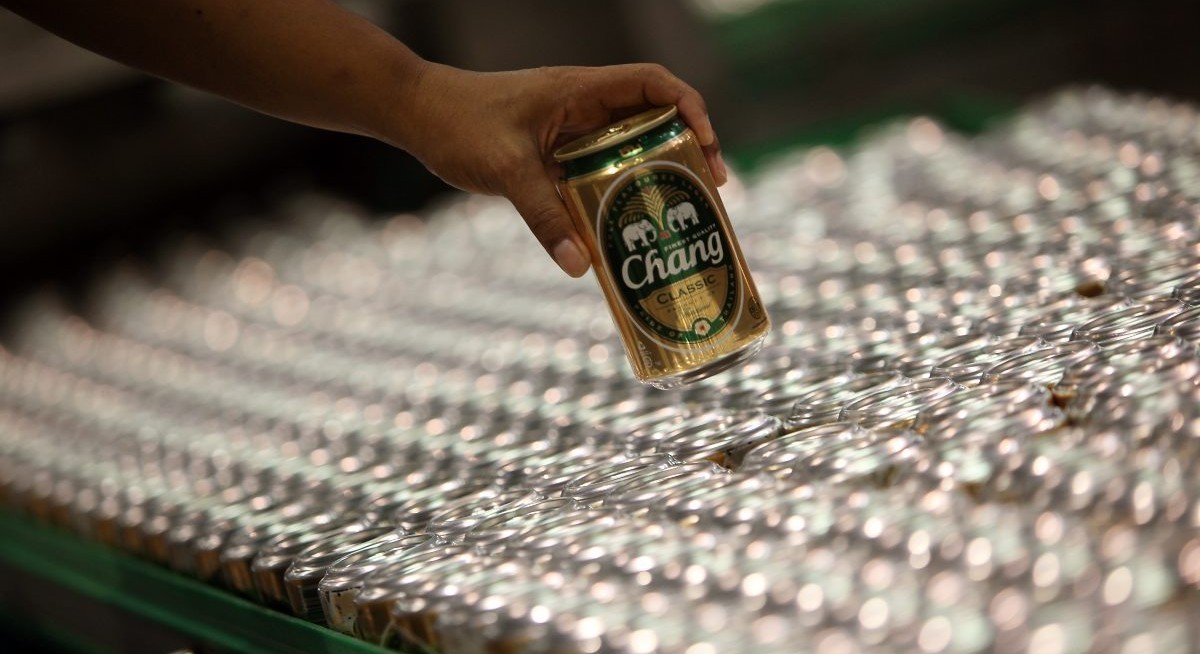“Thai Beverage reaffirmed interest from strategic investors in the proposed BeerCo IPO but said it will wait for favourable market conditions to unlock value. In the meantime, Thai Beverage (SGX:Y92
"In our view, given the ongoing global market uncertainty, we opine that any near-term potential IPO would not result in favourable valuations," state UOB Kay Hian's Llelleythan Tan and Heidi Mo in their June 25 note, where they kept their "hold" call and 45 cents target price.
Year to date, Thai Beverage’s share price has dropped by nearly 18% as of June 24. In contrast, the Straits Times Index, of which Thai Bev is one of the 30 component stocks, has held steady in the same period. From the perspective of Chee Zheng Feng of DBS Group Research, the recent weakness of this counter is due to political uncertainty and the general outlook. Recently, Thailand’s Prime Minister Paetongtarn Shinawatra found herself in a political crisis after a phone call with Cambodia’s Hun Sen was leaked.
However, Chee is not about to lend too much weight to the political drama. “Historical patterns suggest that such political noise has had limited correlation with the stock’s performance. Instead, margins and consumer demand tend to be the key price drivers.”
See also: Stress test: Analysts weigh in on Tan Su Shan’s first year as DBS group CEO
“Investors are awaiting potential re-rating catalysts, particularly clarity on the timing of the BeerCo IPO, value-unlocking moves, or the entry of a strategic investor — elements which remain uncertain at this juncture given the current macro and geopolitical environment,” says Chee.
At just 11 times FY2025 earnings, the stock trades at close to –2 standard deviations below its 10-year average, reflecting weak sentiment already priced in. Downside risk is also cushioned by an estimated yield of around 5%, says Chee, who has kept his “buy” call with a target price of 63 cents, which is based on 16 times earnings.
With the IPO not an immediate priority, Thai Beverage is focused on improving operational efficiencies and margins. According to Chee, the company looks forward to better margins in the second half of the year, with raw material costs ranging from molasses for spirits and malt to glass and aluminium for beer cans, easing.
See also: ‘Path to breakeven becoming visible’ for MetaOptics
For Chee, Thai Beverage’s beer business in its home market, Thailand, is the “stand-out” performer. Chang Classic, a key label, has consolidated leadership in the mainstream segment, while another label, Chang Cold Brew, is gaining traction too. The near-term goal is to cross the symbolic 45% market-share threshold, aiming for a majority share.
On the other hand, the beer business in Vietnam, another key market, is seeing pressure from tighter drink-driving enforcement, future excise hikes and weak macro environment. Even so, Thai Bev remains bullish on Vietnam’s mid to long-term beer trajectory given favourable demographics and a 95% beer share of total alcohol consumption.
Vietnam is poised to hike a so-called special sales tax in 2027 from 65% to 70%, which will compel the company to raise selling prices by around 2%, estimates Chee. As the tax affects other alcohol companies too, whose competing products are priced at around 20% higher, Chee believes that Sabeco, as the Vietnam unit is called, will benefit from consumers downtrading.
Kande and Lim of CGS International are observing another bright spot: Myanmar. Via its subsidiary F&N, Thai Beverage has re-entered Myanmar since 2019. It has become a key growth market with beer sales doubling over the preceding year, which has helped offset lower contribution from Vietnam in the 1HFY2025 ended March.
Euromonitor, a market data firm, estimates that Thai Beverage’s market share in Myanmar has increased from just 1% in 2020 to 16% in 2024, led by the brands Chang and Tapper. They point out that Thai Beverage’s revenue in Myanmar increased by 98% y-o-y in 1HFY2025, a pick-up from 46% y-o-y in FY2024.
In contrast, Myanmar Brewery, the unlisted incumbent, has started losing market share since 2021, worsened in 2022 by the exit of Japan’s Kirin, a joint venture partner, amid consumers’ mass boycott. Following the completion of Kirin’s sale of its stake in early 2023, the sole owner of Myanmar Brewery is Myanma Economic Holdings, a military-owned conglomerate.
Kande and Lim have maintained their “add” call and 56 cents target price, backed by their forecast of 8% core earnings growth over FY2025 to FY2027, plus a dividend of 5.7%, which beats 4% given by the peers.
Re-rating catalysts include stronger margins from tighter cost controls, volume uplift from downtrading in Vietnam. In contrast, downside risks include prolonged macroeconomic weakness impacting sales volumes and lower margins from higher costs.



